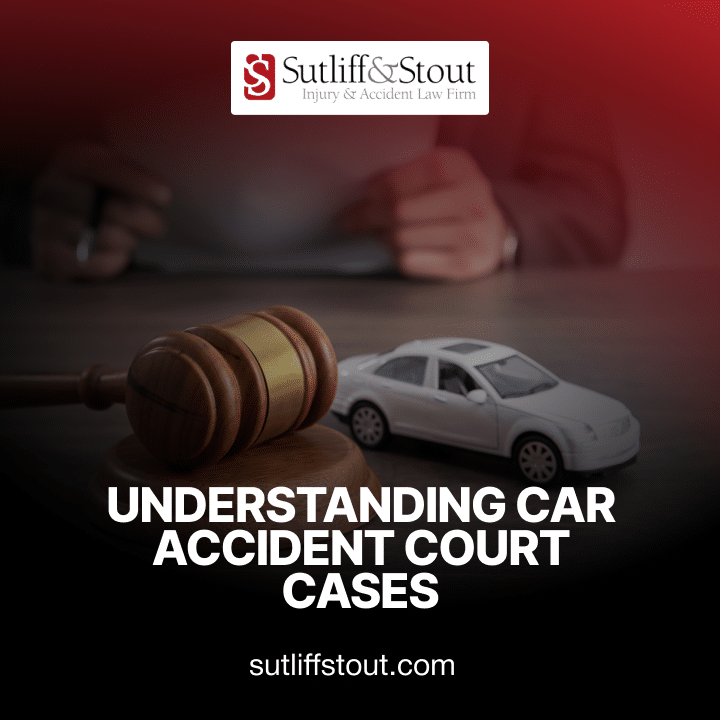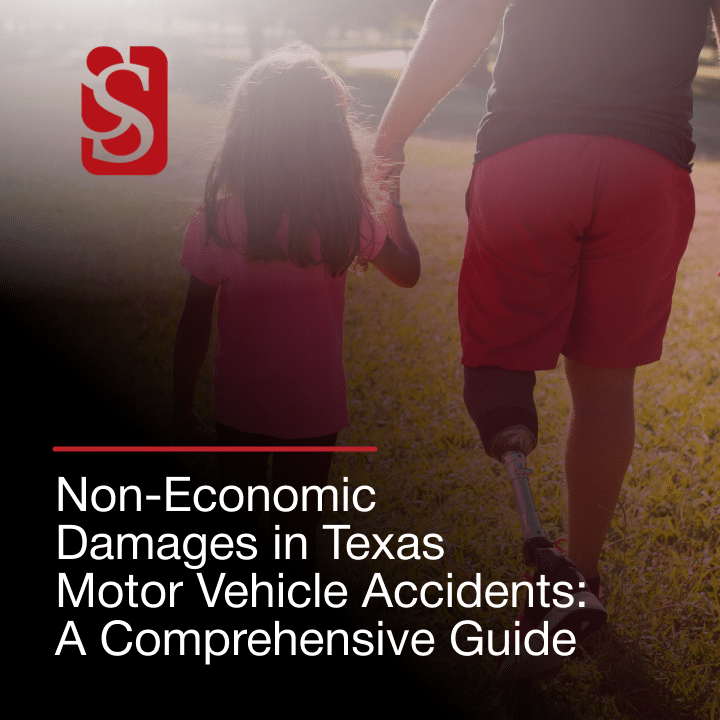Car accidents can happen in a flash, but their consequences often last far beyond the initial crash.
While many people think that the physical injuries from a car accident will heal over time, the reality is much more complicated.
The long-term impact of car accident injuries can affect your body, mind, and even your finances for years to come.
This guide will provide a comprehensive look at what to expect and how to manage life after a serious car accident.’
Car Crash Injury Figures
| Category | Statistic |
|---|---|
| Total Deaths | 46,027 |
| Medically Consulted Injuries | 5.2 million |
| Economic Impact | $481.2 billion |
| Registered Vehicles | 283 million |
| Licensed Drivers | 235 million |
| Death Rate per 100 Million Vehicle Miles | 1.44 |
| Death Rate per 10,000 Registered Vehicles | 1.62 |
| Death Rate per 100,000 Population | 13.81 |
An Overview of Long-Term Consequences of Car Accidents
The aftermath of a car accident can be overwhelming, and the full extent of injuries may not be immediately apparent.
While some injuries heal quickly, others may lead to long-term health issues that disrupt everyday life.
These long-term consequences can include physical limitations, chronic pain, mental health challenges, and financial hardships.
Common Misconceptions About Post-Accident Recovery
Many people believe that once the visible injuries heal, the body is fully recovered. This is far from the truth. Even minor accidents can cause injuries that linger for months or even years.
For example, a seemingly small whiplash injury could lead to chronic neck pain, headaches, and even difficulties with concentration.
It’s important to recognize that not all injuries are immediately obvious—some develop slowly over time.
Immediate vs. Long-Term Effects of Car Accidents
Car accidents can result in a wide range of injuries, from minor cuts and bruises to severe, life-changing conditions.
Understanding the difference between immediate and long-term effects is crucial for both treatment and recovery.
Immediate effects are those that appear right after the accident, while long-term effects may develop over time and can have a lasting impact on a person’s quality of life.
Immediate Effects:
- Visible Injuries
- Shock and Disorientation
- Internal Injuries
- Adrenaline Surge
Long-Term Effects:
- Chronic Pain
- Mental Health Issues
- Reduced Mobility
- Financial Strain
Being aware of both immediate and long-term effects is key to understanding the full scope of injuries caused by car accidents.
Early intervention and comprehensive care can help mitigate some of the long-term consequences, leading to better recovery outcomes.
The Importance of Early Medical and Legal Support
Seeking medical attention right after a car accident is crucial, even if you feel fine.
Many injuries, like internal bleeding or a concussion, may not show symptoms right away but can have serious long-term consequences.
Additionally, consulting with a law firm like Sutliff & Stout can be vital in ensuring that you receive the compensation needed to cover medical expenses and other losses—especially when dealing with long-term effects that might not be covered by insurance initially.
Physical vs. Psychological Long-Term Effects
Long-term physical effects are often more visible, such as scars, chronic pain, or reduced mobility.
Psychological effects, on the other hand, can be just as debilitating but are often overlooked.
Conditions like anxiety, depression, and PTSD can develop after a traumatic accident and may require extensive treatment and support.
Understanding that both physical and psychological effects need attention is essential for a full recovery.
Impact on Daily Activities and Lifestyle
The long-term impact of car accident injuries can significantly alter your day-to-day life.
Activities that were once simple—like driving, working, or even walking—can become challenging.
Chronic pain might limit your mobility, while PTSD could make it difficult to get behind the wheel again.
These changes can lead to a reduced quality of life and might even require a complete lifestyle adjustment, affecting not just the victim but their family as well.
Economic and Societal Impact of Long-Term Car Accident Injuries
Car accident injuries don’t just affect individuals—they also have a broader economic and societal impact.
Long-term disabilities can lead to loss of income, higher healthcare costs, and a decreased ability to contribute to the community.
The estimated cost of car accidents in the United States is over $870 billion annually, including medical expenses, lost productivity, and property damage.
This financial burden highlights the importance of addressing the long-term consequences of accidents comprehensively.
Physical Long-Term Effects of Car Accident Injuries
Physical injuries from car accidents can have lingering effects that extend far beyond the initial recovery period.
These injuries can alter one’s physical abilities, making daily tasks more difficult and sometimes even impossible.
Understanding these long-term physical consequences is essential for planning treatment, rehabilitation, and life adjustments.
Chronic Pain and Disabilities
Chronic pain, such as back or neck pain, can persist for months or even years after an accident, affecting nearly half of whiplash victims. This pain can make daily activities like working or even sleeping difficult.
Severe injuries can lead to disabilities, requiring assistive devices and altering a person’s independence.
Managing these conditions often requires ongoing medical care and therapy.
Neurological Impacts
Neurological injuries, like traumatic brain injuries (TBIs), can result in memory loss, concentration issues, or changes in personality.
Around 17% of TBI patients face long-term impairments. These effects can make returning to work or maintaining relationships challenging.
Early intervention and treatment are essential for better outcomes.
Impact on Mobility and Physical Activities
Fractures and muscle damage from accidents can limit mobility, making it difficult to perform even simple tasks.
Many victims face long-term restrictions on activities like walking or exercising.
Physical therapy can help but may not fully restore pre-accident abilities. These limitations can lead to lifestyle changes and emotional distress.
Psychological and Emotional Long-Term Effects
The psychological and emotional impacts of car accidents can be just as severe as physical injuries, yet they are often overlooked.
These effects can manifest in various forms, from anxiety and depression to severe conditions like Post-Traumatic Stress Disorder (PTSD).
Understanding these psychological consequences is crucial for a comprehensive recovery process.
Addressing mental health issues early and seeking appropriate treatment can significantly improve the quality of life for accident victims.
Post-Traumatic Stress Disorder (PTSD)
PTSD is a common psychological response to traumatic events like car accidents.
Symptoms may include flashbacks, nightmares, and severe anxiety that can make daily life overwhelming.
Studies show that around 9% of car accident survivors develop PTSD. This condition can interfere with a person’s ability to drive, work, or even be around vehicles, leading to a sense of isolation and helplessness.
Early intervention, including therapy and support groups, is essential for managing PTSD and improving long-term outcomes.
Depression and Anxiety
Depression and anxiety are frequent companions to chronic pain and disability following an accident.
Victims may struggle with feelings of sadness, hopelessness, and a constant sense of worry.
These conditions can affect sleep, appetite, and overall motivation, making recovery even more challenging.
Treatment often involves a combination of therapy and medication, and support from family and friends can make a significant difference in the healing process.
Impact on Relationships and Social Life
The psychological effects of car accidents can also strain relationships with family and friends.
Victims may withdraw socially or have difficulty communicating their needs and feelings. This can lead to misunderstandings and frustration for everyone involved.
Supportive relationships and open communication are key to navigating these challenges and rebuilding a fulfilling social life.
The Importance of Comprehensive Care
Addressing psychological impacts is just as important as treating physical injuries.
Comprehensive care that includes mental health support can significantly enhance the recovery process.
Working with healthcare providers to develop a personalized treatment plan is crucial.
For those struggling with the aftermath of an accident, legal support from Sutliff & Stout can help ensure that you have the resources needed for both physical and mental health recovery, providing a solid foundation for moving forward with your life.
Long-Term Financial Implications of Car Accident Injuries
Car accident injuries can have a profound financial impact that lasts long after the crash. The costs associated with medical treatment, rehabilitation, and lost wages can quickly add up, creating a financial burden for victims and their families.
Understanding these financial implications and planning accordingly is crucial for long-term stability and recovery.
Medical Expenses and Ongoing Care Costs
Medical expenses are often the most immediate and substantial financial burden following a car accident.
Even after the initial hospital bills are paid, long-term injuries may require ongoing care, such as physical therapy, surgeries, or medication.
For instance, the average cost of a hospital stay for a spinal cord injury can exceed $140,000 in the first year alone.
These expenses can quickly deplete savings and lead to significant financial strain, especially if the victim is unable to work during recovery. Insurance may cover some costs, but it often falls short, leaving the victim responsible for a large portion of the expenses.
Impact on Earning Capacity and Employment
Long-term injuries can affect a person’s ability to return to their previous job or work full-time.
This loss of earning capacity can have a devastating effect on financial stability, especially if the victim was the primary income earner in the household.
According to a study by the National Safety Council, the average cost of lost productivity due to car accidents is around $1,230,000 per fatality and $78,900 per non-fatal disabling injury.
Victims may need to seek new employment opportunities that accommodate their physical limitations, often at a lower pay rate, further complicating financial recovery.
Legal Compensation and Insurance Claims
Securing fair compensation after a car accident can be a complex process that requires careful attention to detail.
Many victims are unaware of their rights or the steps needed to ensure they receive the full amount they are entitled to.
Following a structured approach can help streamline this process and improve your chances of a successful claim.
- Seek Medical Attention
- File a Police Report
- Notify Your Insurance Company
- Collect Evidence
- Consult a Houston Car Accident Lawyer
- File a Claim
- Negotiate Settlement
- Consider Legal Action
- Receive Compensation
- Plan for Future Needs
Following these steps can help ensure that you receive the compensation you need to recover from the financial impact of a car accident.
Get Help with Long-Term Impact of Car Accident Injuries
If you or a loved one are dealing with the long-term consequences of a car accident, it’s important to seek the right support.
Contact Sutliff & Stout, your trusted Houston car accident lawyer, at (713) 405-1263 to learn how you can get the compensation and assistance you need.
Your recovery matters, and you don’t have to face it alone.
- What is a Catastrophic Injury? - January 30, 2025
- Essential Guide for Pedestrians Hit by Cars in Texas - January 30, 2025
- How to File a Wrongful Death Lawsuit in Texas - January 15, 2025








 (713) 405-1263
(713) 405-1263  550 Post Oak Blvd, Suite 530
550 Post Oak Blvd, Suite 530